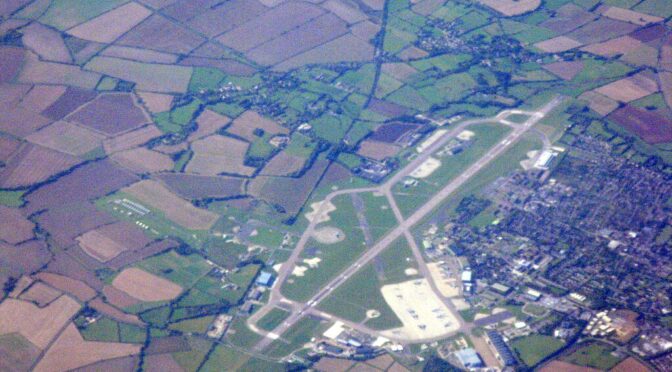Article published in The Daily Telegraph, 20 June 2025. © Richard Kemp
Many were astonished recently at Russia’s inability to defend its military aircraft when Ukraine carried out drone strikes against them deep inside Russian territory. Well now the inadequacy of our own air base security has been exposed, although thankfully in a far less serious way. For now.
RAF Brize Norton was attacked not by external forces but the enemy within. This was not a protest; it was a deliberate act of sabotage against military assets used to defend our country. What is shocking is that these saboteurs were able to access a highly defended base, put two air to air refuelling tankers out of action, and leave without being detected.
That should not have happened at any time. But right now military bases should have been on a substantially heightened state of alert. Whether or not we are providing any assistance to Israel in its defensive operations against Iran, Tehran certainly believes we are. They see us as a key ally of Israel and also attribute to Britain a disproportionate level of influence over US actions.
We are therefore a high priority target for Iranian terrorism. Don’t forget only weeks ago seven Iranians were arrested here on allegations of preparing terrorist attacks and other security offences. And in 2015 our security service disrupted an Iranian-backed bomb plot on the outskirts of London. The threat from Tehran has significantly increased since the latest arrests, with Iran under attack and the ayatollahs desperate to find effective ways of hitting back at Israel and its allies.
The Islamic Revolutionary Guard Corps has long positioned sleeper cells in European countries including the UK for precisely the situation they find themselves in now. This was a known specific threat back in the early 2000s, when I was working for the UK Joint Intelligence Committee. We don’t know exactly their capabilities but it would be irresponsible not to assume that terrorist attacks in Britain could be initiated from Tehran at any time.
The fact that the British Government has repeatedly refused to proscribe the IRGC as a terrorist organisation suggests a dangerous degree of complacency. That should have happened a long time ago and certainly should happen now.
Beyond the very real and immediate threat from Iran there is Russia. Putin has identified Britain as its number one enemy in Europe. We have led the way in supporting Ukraine both economically and militarily. British intelligence and surveillance have been a critical element of Kyiv’s operations against Russia. Donated British tanks and other armoured vehicles are in Ukraine now and our long range missiles have been used to attack Russian forces both inside Ukraine and on Russian sovereign territory.
Furthermore, like Iran, Putin has previously ordered terrorist strikes on UK soil, including a nerve agent attack in Salisbury in 2018. Since then suspected Russian sabotage has been suspected here and cyber attacks carried out against government and private sector targets.
Security, even of military bases, can never be 100 per cent; but this penetration of RAF Brize Norton by the Palestine Action activists, brazen enough to cross the airfield on electric scooters, shows the most serious shortcomings. What if they had been armed not with paint but explosives?
Those planes could have been destroyed, not temporarily disabled, and airmen could have been killed. What we have seen amounts to an open invitation to even more serious saboteurs and terrorists to attack.
The threat is going to get worse, not only from Iran and Russia, but also from people here who hate our country and want to cause us harm. The thousands of illegal immigrants pouring in on small boats, with no way to screen, document or control them, adds yet another dimension.
All of Britain’s military bases, as well as other critical targets, should immediately be placed on a war footing, where they should have been at least since we started supporting Ukraine and even more so since Iran came under attack.
Image: Wikimedia Commons

